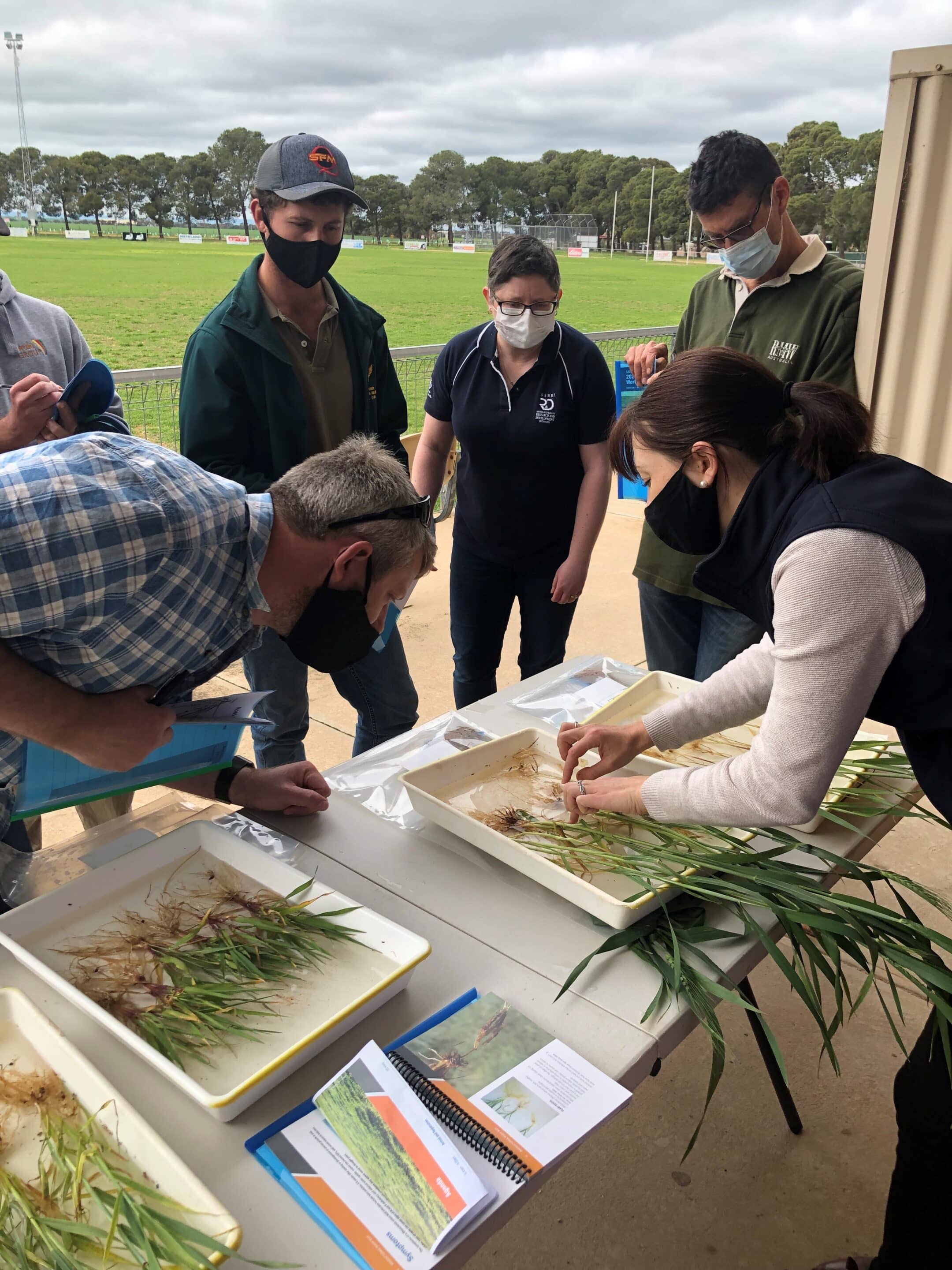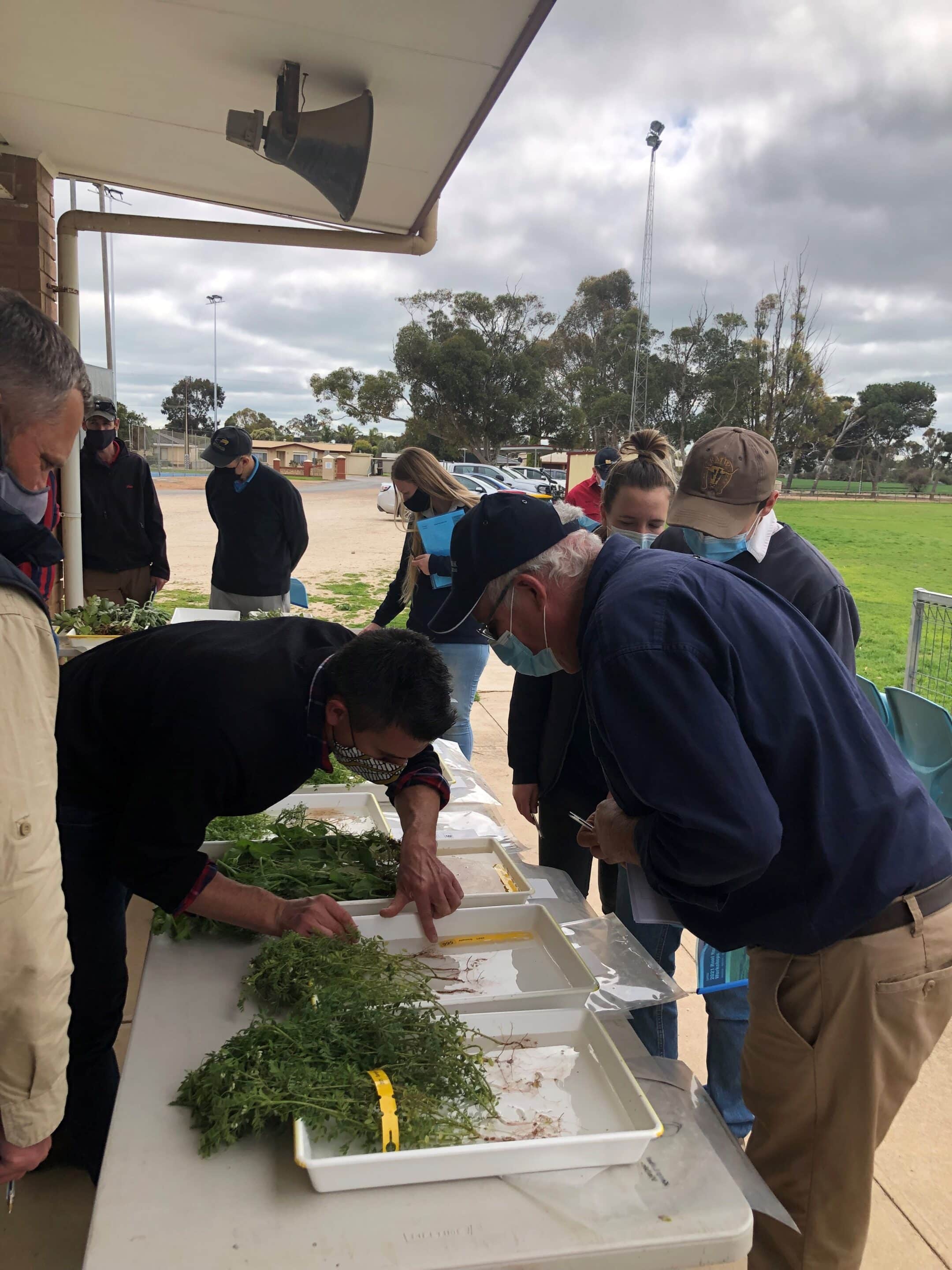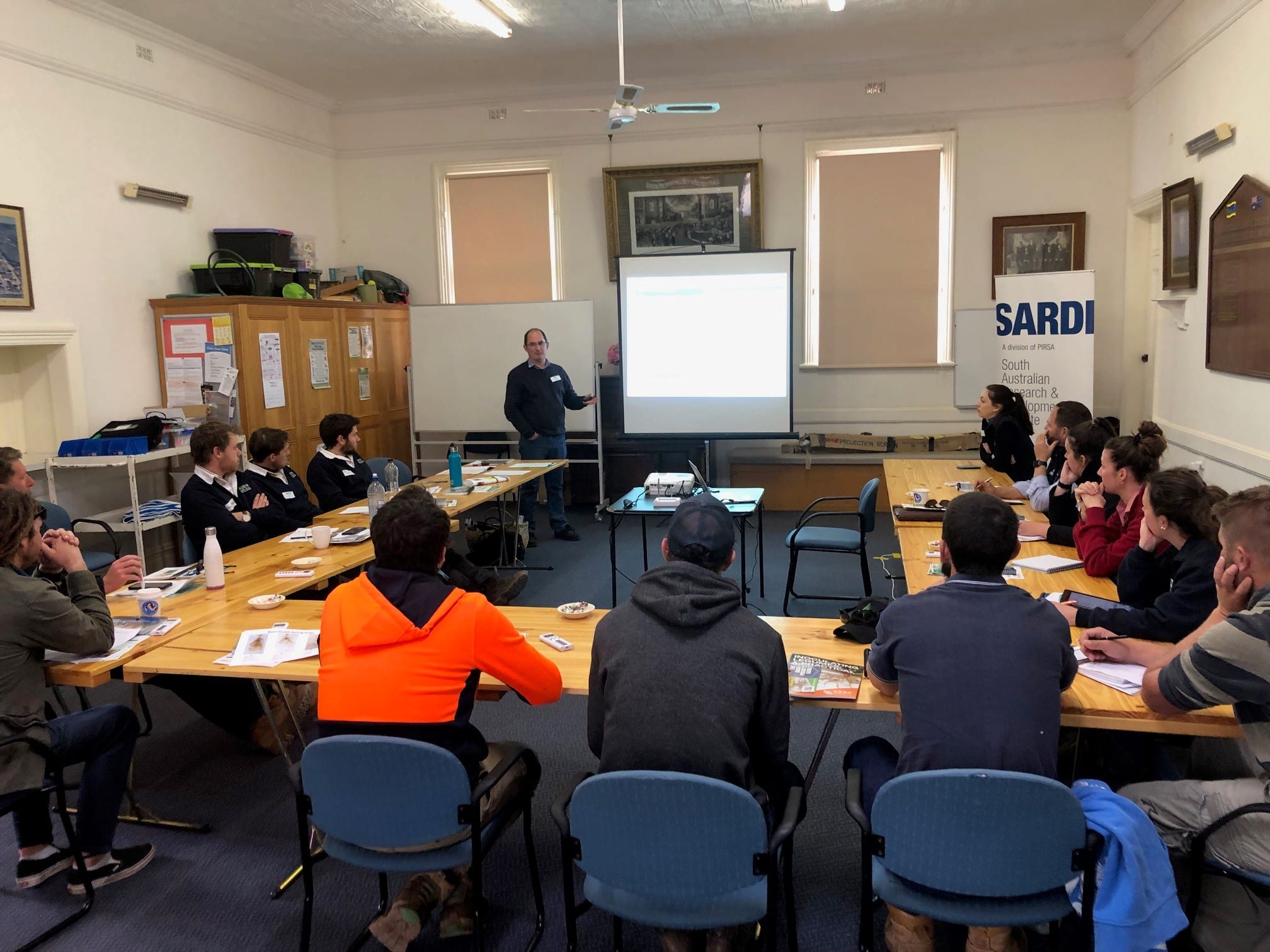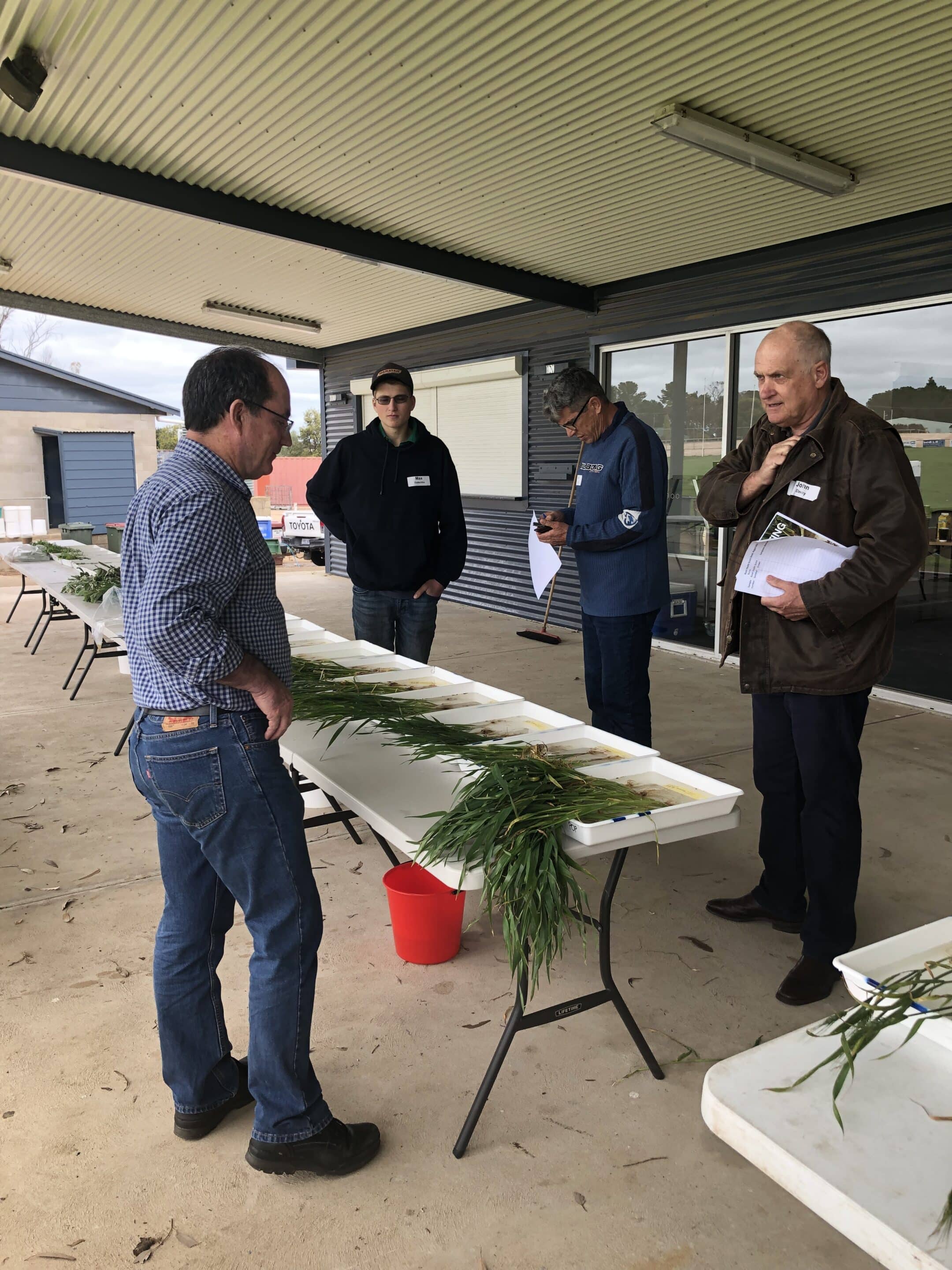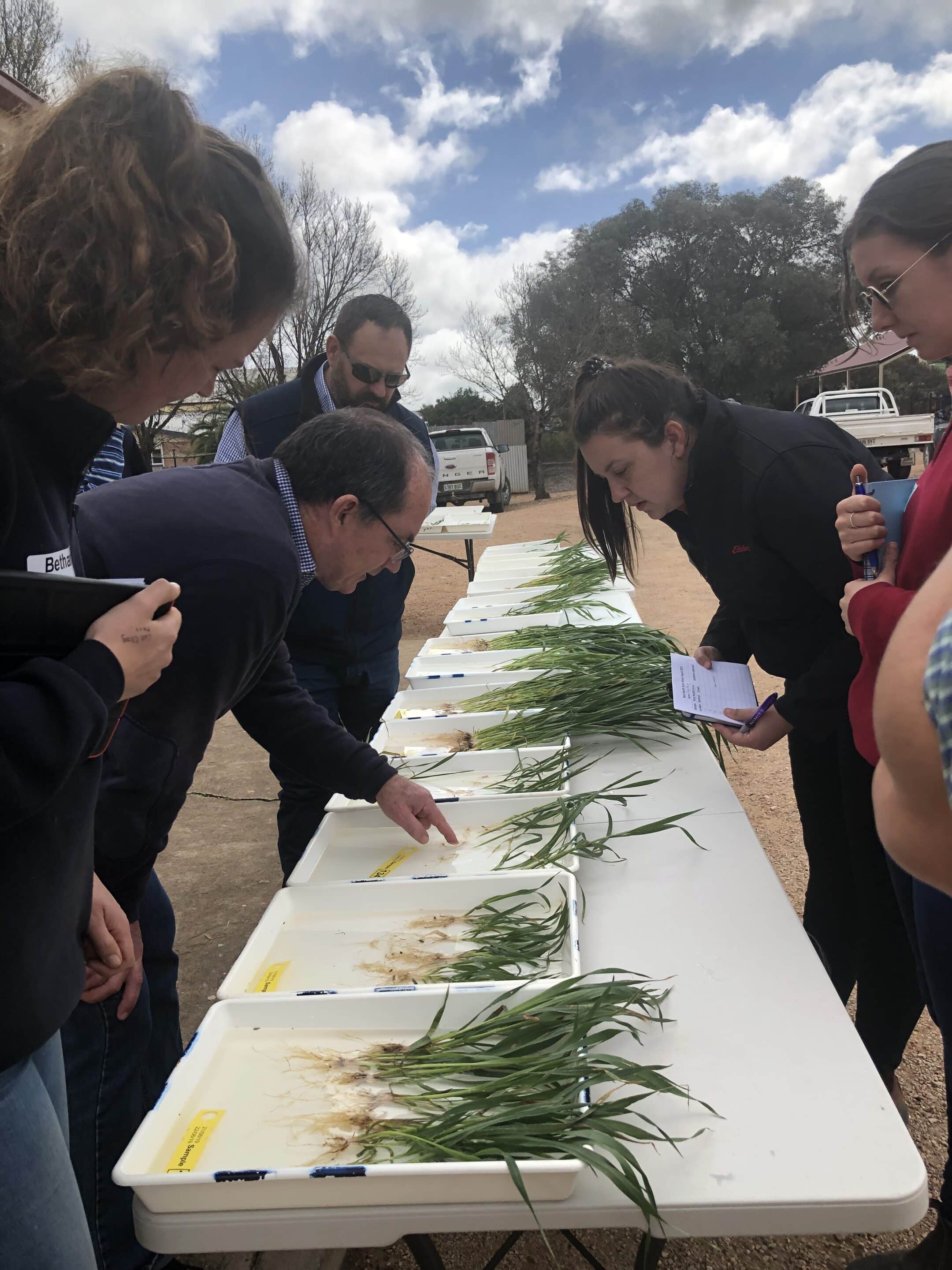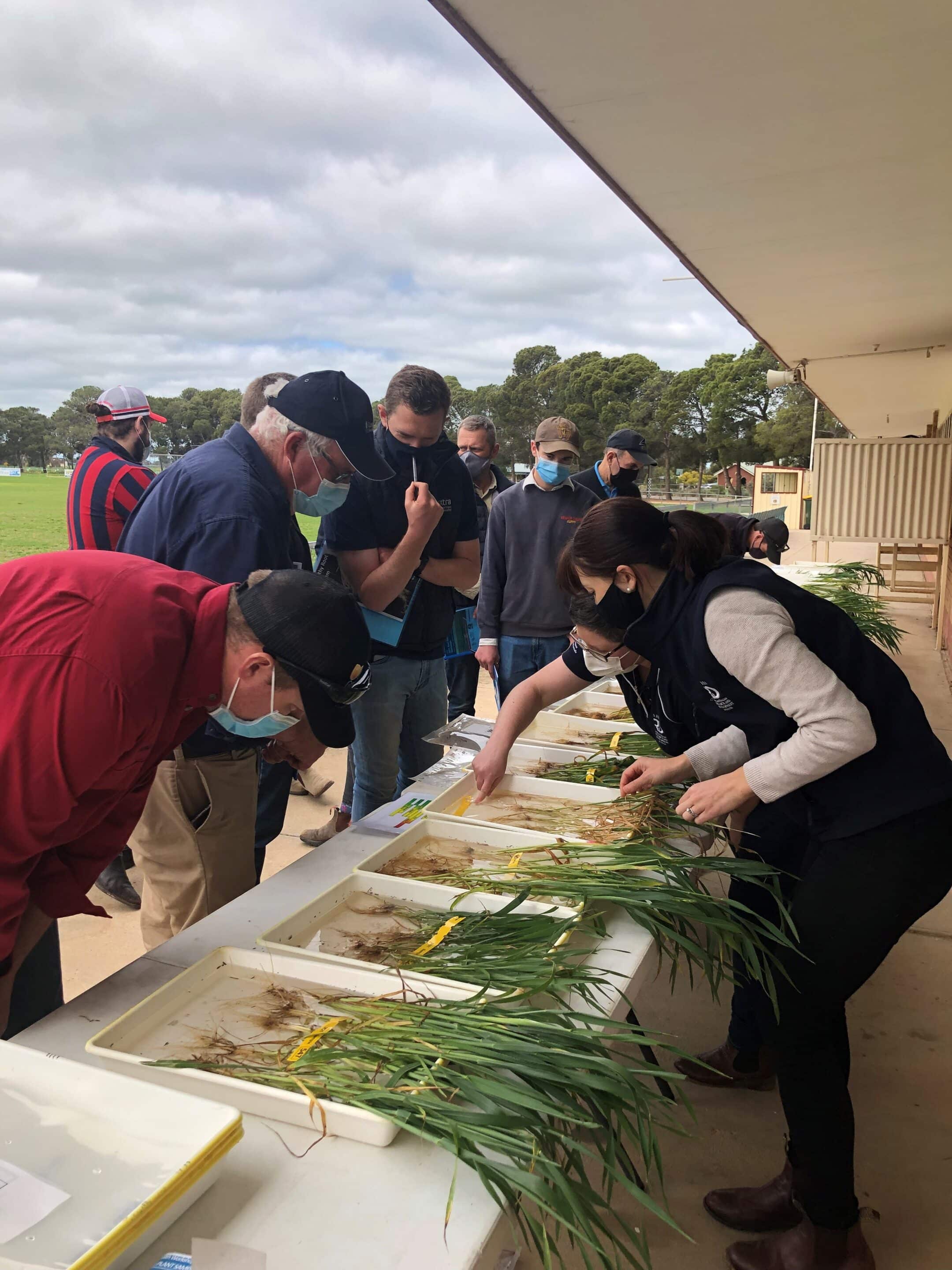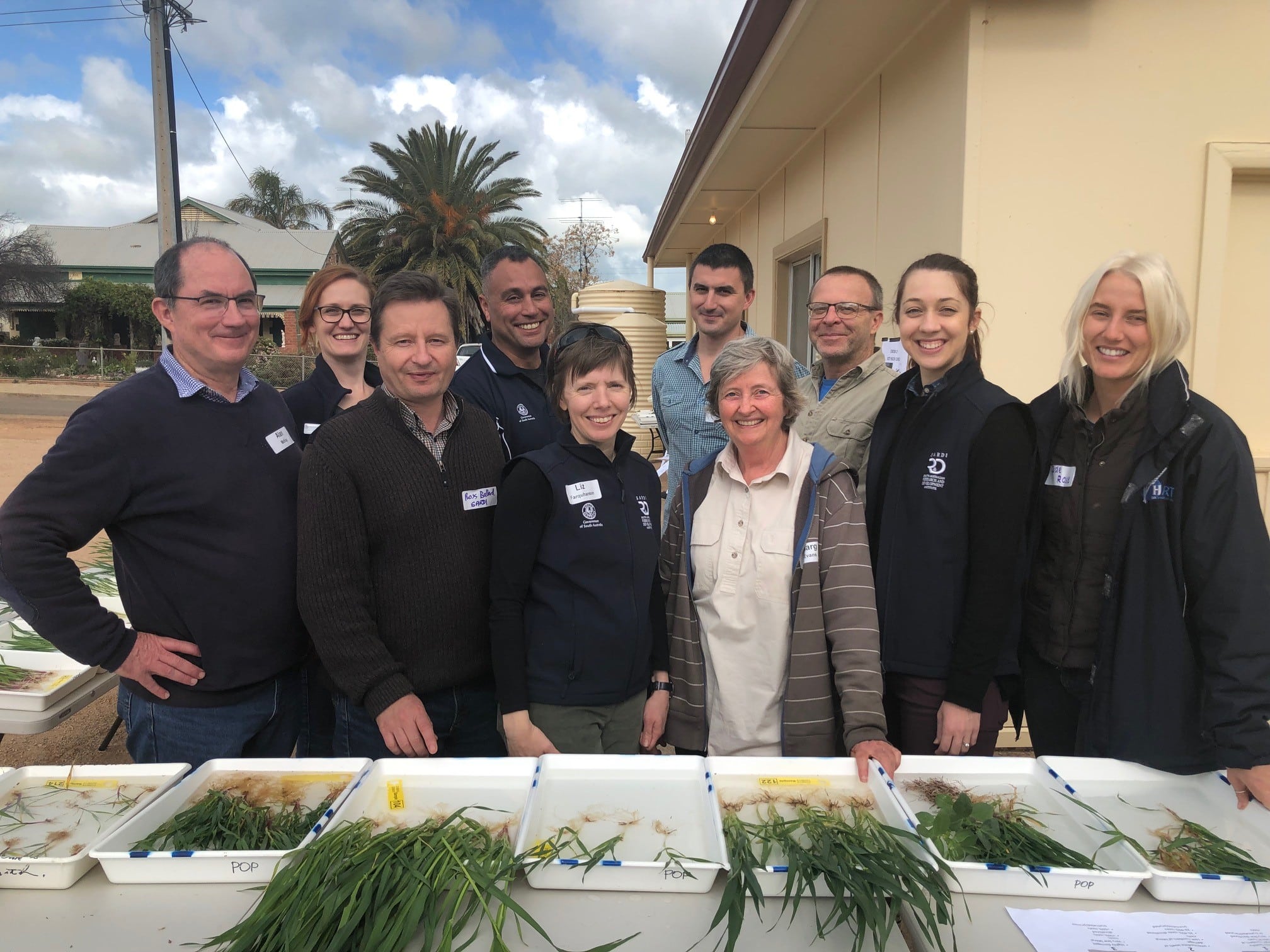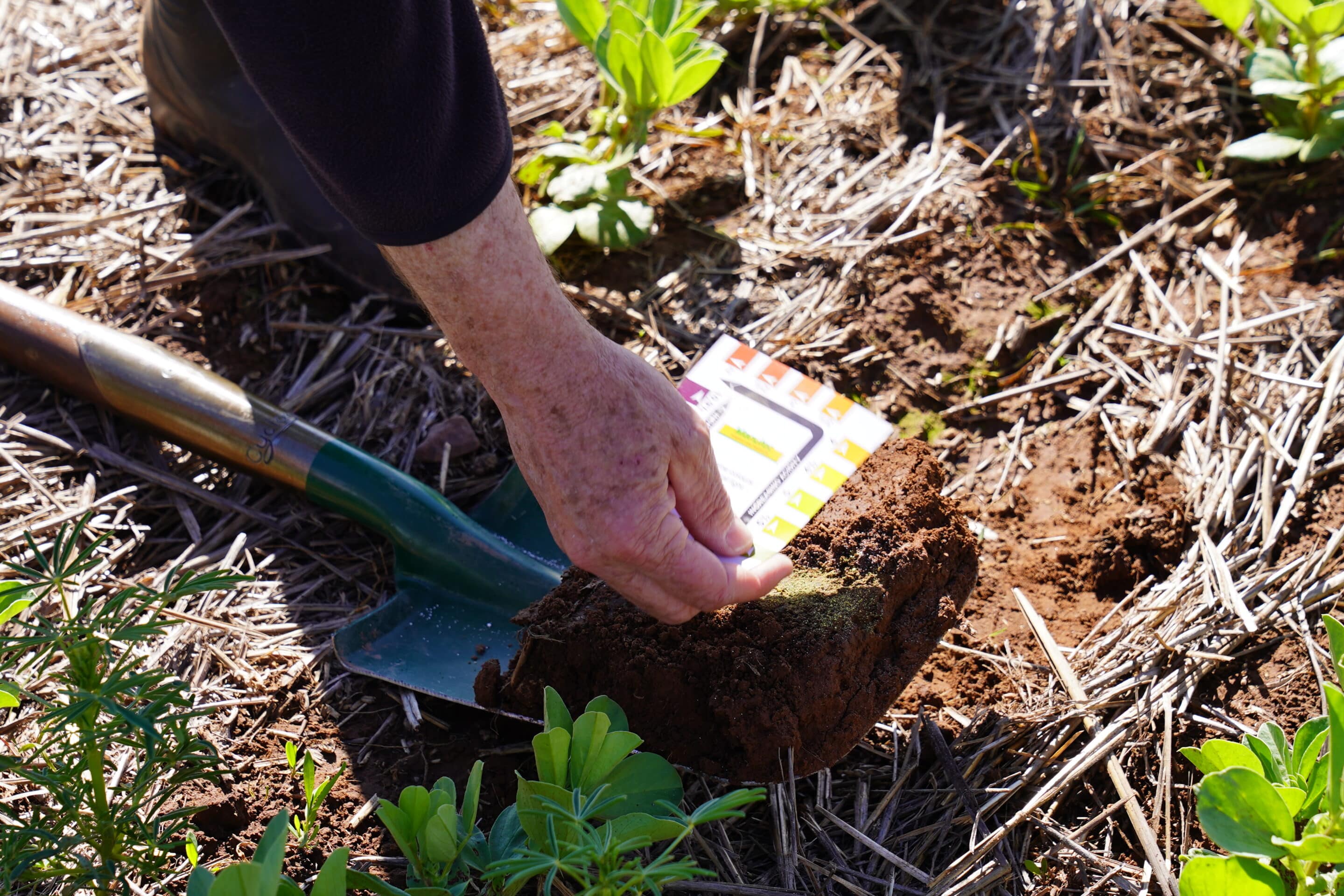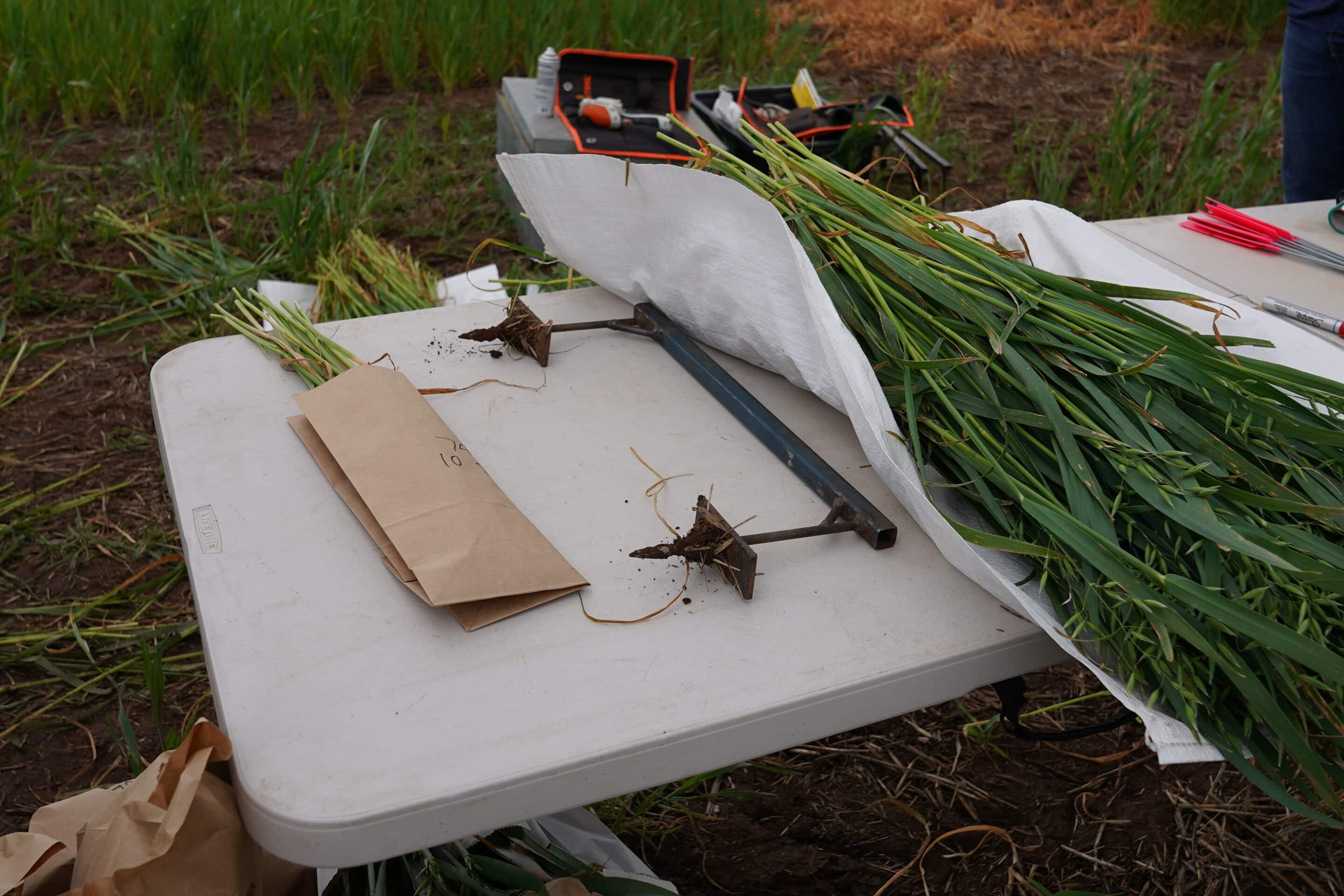START
FINISH
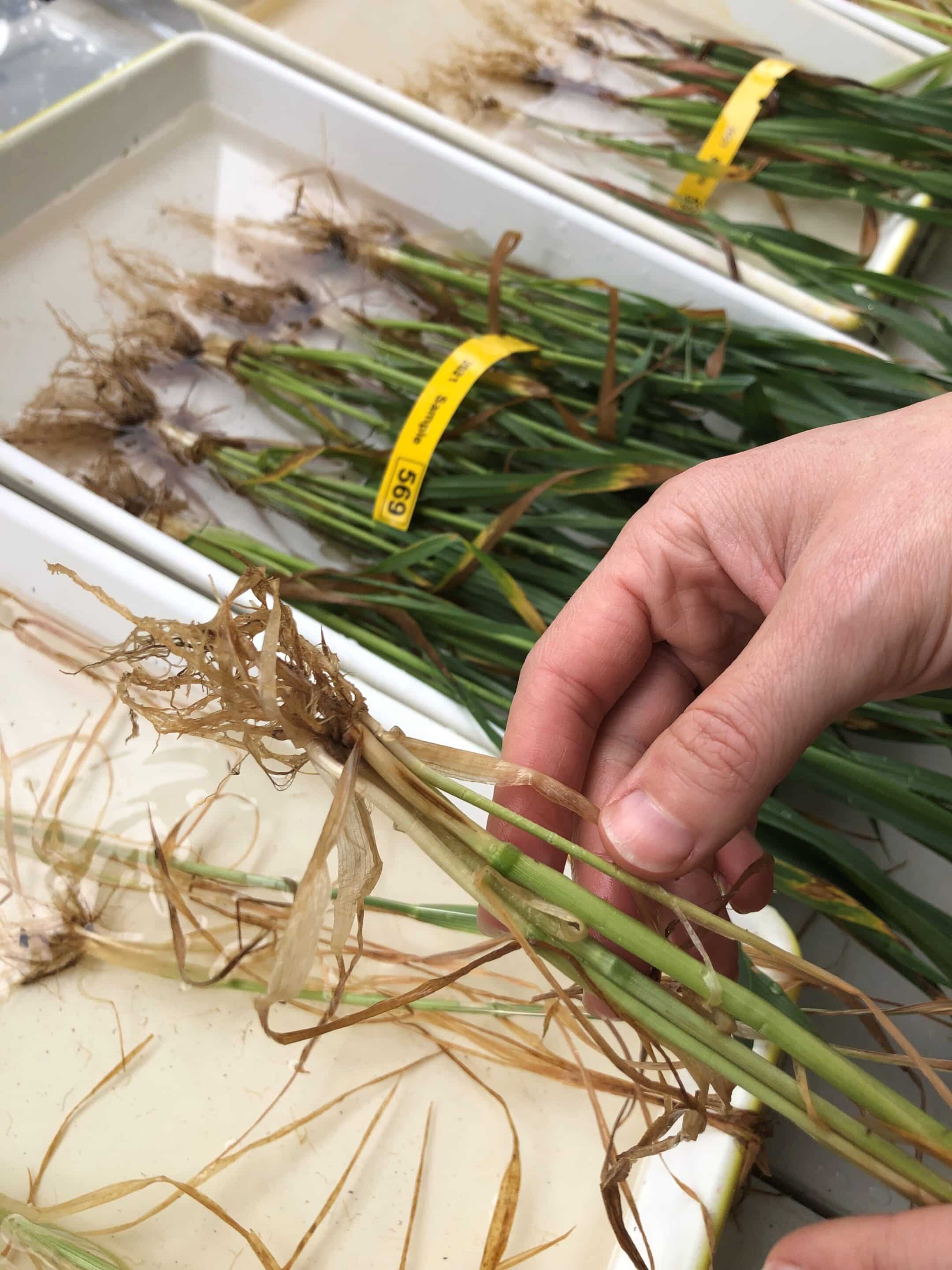
Summary
Eight root health workshops were delivered to 126 growers and advisers across SA between 2018 and 2020. These hands-on sessions helped improve understanding of root disease among participants. The workshops also drove on-farm practice change, with participants surveyed a year later indicating they were confident in assessing crop root health and knowing where to seek advice.
Resources developed to assist growers and advisers in the identification and management of cereal root diseases have proved valuable post-workshop. These resources included a back-pocket grower manual.
Background
An understanding of how to identify and diagnose the symptoms of crop root diseases is important for growers and advisers to ensure maximum productivity. One of the challenges is that crop root health is not always easy to identify from the surface and requires more thorough investigation. These interactive workshops were designed to encourage growers to monitor crop root systems and to train them to recognise the characteristic symptoms of the main soilborne diseases.
Research Aims
The core objectives of the project were to:
- Develop and deliver crop root health workshops to SA growers and agronomists to encourage growers to monitor crop root systems.
- Train growers to recognise characteristic symptoms of the main soilborne diseases and score nodulation of pulse crops.
- Demonstrate the value of PREDICTA® B to identify primary pathogens in diseased roots.
- Follow-up workshop participants for feedback on how to improve workshop format, identify and develop useful supporting material and monitor uptake by growers.
- Develop skills in SARDI young researchers to communicate effectively with grower groups.
- Capture intelligence on disease trends and issues.
In The Field
Researchers from SARDI partnered with AgCommunicators to deliver eight root health workshops between 2018 and 2020. These were held in Keith, Coomandook, Blyth, Maitland, Waite, Lock, Kimba and Gladstone. In total, more than 120 growers and advisers attended the workshops.
Participants brought plant samples from a cereal and a pulse crop to the workshops from their own or their client’s paddocks — one sample from a well-performing or average area and one from an underperforming area.
The workshops ended with an overview of the diseases observed and a Q&A panel session with researchers. Based on feedback from the 2018 workshops, a session on disease management was also included at the 2019 and 2020 workshops.
Due to COVID-19 restrictions, the 2020 workshops were delivered online. The online format included a one-hour group session, followed by individual 45-minute consultations. The participants washed and photographed their own samples and sent the samples to SARDI for DNA testing by following simple illustrated instructions.
Following feedback in 2018, a new cereal root health manual for growers was produced and delivered at the 2019 workshops. This back-pocket type guide provides identification and management information to assist growers and advisers in managing cereal root diseases.
Results
All workshops were well attended and rated highly with participants post-event. Participants were surveyed before and after the workshop to gauge their knowledge of root health and were again surveyed one year later. Prior to the workshop, 30 per cent of participants were not confident in recognising root diseases. However, after the workshops, all participants said they were confident in assessing crop root health, 50 per cent able to recognise the main root diseases and 82 per cent said they would increase crop root health assessments on-farm.
A year after the workshop, 82 per cent said they had made an on-farm practice change, with participants reporting greater confidence in identifying root diseases, and an understanding of the impact root disease can have on yield. The main practice changes included changes to rotations, seed and fertiliser treatments, nutrition plans, PREDICTA® B soil tests, examining roots from different zones and taking more care to wash roots.
From the eight workshops, 258 root samples were DNA tested by SARDI pathologists. In cereal samples, Rhizoctonia, Pratylenchus neglectus and Pythium clade F were detected in most samples. Rhizoctonia and P. neglectus were both detected at high levels in 30 per cent of samples.
In pulse samples, DNA results revealed the most commonly detected pathogens were Pythium clade F (89 per cent), P. neglectus (83 per cent), Didymella pinodes/Phoma pinodella (78 per cent). These were present in high levels in 20 per cent of samples and Rhizoctonia was detected in 28 per cent of samples.
The DNA results show that root pathogens often occur together and can be difficult to diagnose based on symptoms alone, so the PREDICTA® B test can be a useful tool.
Project Participants
SARDI: Dr Katherine Linsell, Blake Gontar, Dr Tara Garrard, Dr Liz Farquharson, Dr Alan McKay, Dr Marg Evans
AgCommunicators: Belinda Cay
The Problem
Above ground crop growth is not always a good indicator of root health but growers and advisers need to be equipped with the skills to check for and identify root diseases.
The research
A series of hands-on workshops and grower resources have enabled growers to make changes on-farm to identify root diseases such as rhizoctonia, pratylenchus neglectus and pythium.
More information
Dr Katherine Linsell
T: 08 8429 2232
E: [email protected]
Value for Growers
Those who participated in the workshops rated them highly, with 85 per cent of participants saying they would attend another workshop and 73 per cent would recommend the workshops to a colleague.
The take-home messages from the workshops were:
- Soilborne disease is often not diagnosed because above ground growth does not always reflect root health or the symptoms are attributed to other causes.
- Regular root health checks can help identify root health issues.
- The main objective of doing root health checks is to recognise when a root is not healthy by looking for signs of disease, not to identify specific diseases.
- PREDICTA®B can be used to make better informed variety, crop sequence and paddock management decisions.

